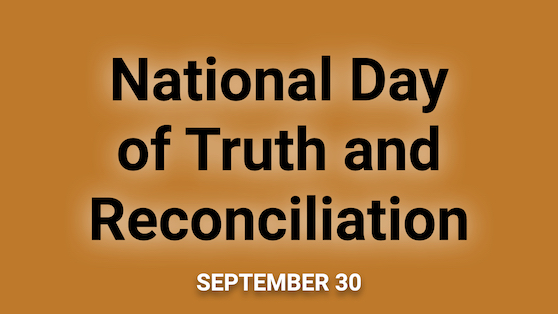
Features
Indigenous
Articles
Blog
Electrical
Energy Manager
94 Calls to Action – reasonable AND achievable
September 28, 2023 | By Anthony Capkun
My own reaction after reading the entire document was “That sounds reasonable”, followed by “That’s doable”.

September 29, 2021 – On September 30, we will mark the first National Day for Truth & Reconciliation. The Government of Canada (Canadian Heritage) explains:
The day honours the lost children and survivors of residential schools, their families and communities. Public commemoration of the tragic and painful history and ongoing impacts of residential schools is a vital component of the reconciliation process.
This day did not come about by accident. In fact, it was specifically identified in the Truth & Reconciliation Commission of Canada’s “Calls to Action”:
#80. We call upon the federal government, in collaboration with Aboriginal peoples, to establish, as a statutory holiday, a National Day for Truth and Reconciliation to honour survivors, their families, and communities, and ensure that public commemoration of the history and legacy of residential schools remains a vital component of the reconciliation process.
You’ve likely heard about the Calls to Action but, unless you go looking for them, you may only ever hear of one or two of them on the news. To that end, you can download them here (PDF): Truth Reconciliation 94 Calls To Action
This is not a voluminous tome. In fact, the 94 Calls to Action take up only about 10 pages… but every page matters.
When publishing this document, the Commission made sure to remind people:
This report is in the public domain. Anyone may, without charge or request for permission, reproduce all or part of this report.
As such, if you do nothing else on September 30, download the Calls to Action above and give them a read. See what they’re all about.
Then share them with someone else.
Without getting into each action item individually, my own reaction after reading the entire document was “That sounds reasonable”, followed by “That’s doable”.
On a business level, when you make the decision to commit to progressive relations with Canada’s First Nations, Métis and Inuit peoples, I recommend contacting Luanne Whitecrow, director of the Progressive Aboriginal Relations (PAR) Program at the Canadian Council of Aboriginal Business.
Luanne is an Ojibway from the Seine River First Nation in Ontario, and one thing I love about her… she returns my calls (Thank you, Luanne!).
PAR is a certification program that confirms corporate performance in Aboriginal relations at the Bronze, Silver or Gold levels, and you may recall seeing some electricity-related folks here at EBMag.com.
The PAR program relies on trainers like Jason Carter—a Nehiyaw, originally from Onion Lake Cree Nation, Sask. (Treaty 6 Territory). His company—Bear Standing Tall & Associates—is a CCAB-certified Aboriginal business that provides training for organizations and corporations progressing toward a certification that confirms corporate performance in Aboriginal relations.
And while Bear Standing Tall’s training helps organizations along their PAR certification journey, it is not exclusively for PAR participants.
“We also provide training for non-PAR corporations, government, and non-profit organizations,” Jason says, who aims to provide authentic, credible, experiential cultural sensitivity training.
Numerous friendly resources are out there… check them out.
The Truth & Reconciliation Commission ran from 2008 to 2015.
The National Centre for Truth & Reconciliation, meantime, has become the permanent archive for the statements, documents and other materials the Commission gathered, and its library and collections are the foundation for ongoing learning and research.
On this inaugural National Day of Truth & Reconciliation, why not give it a peek?
— Anthony Capkun, acapkun@ebmag.com.
Print this page